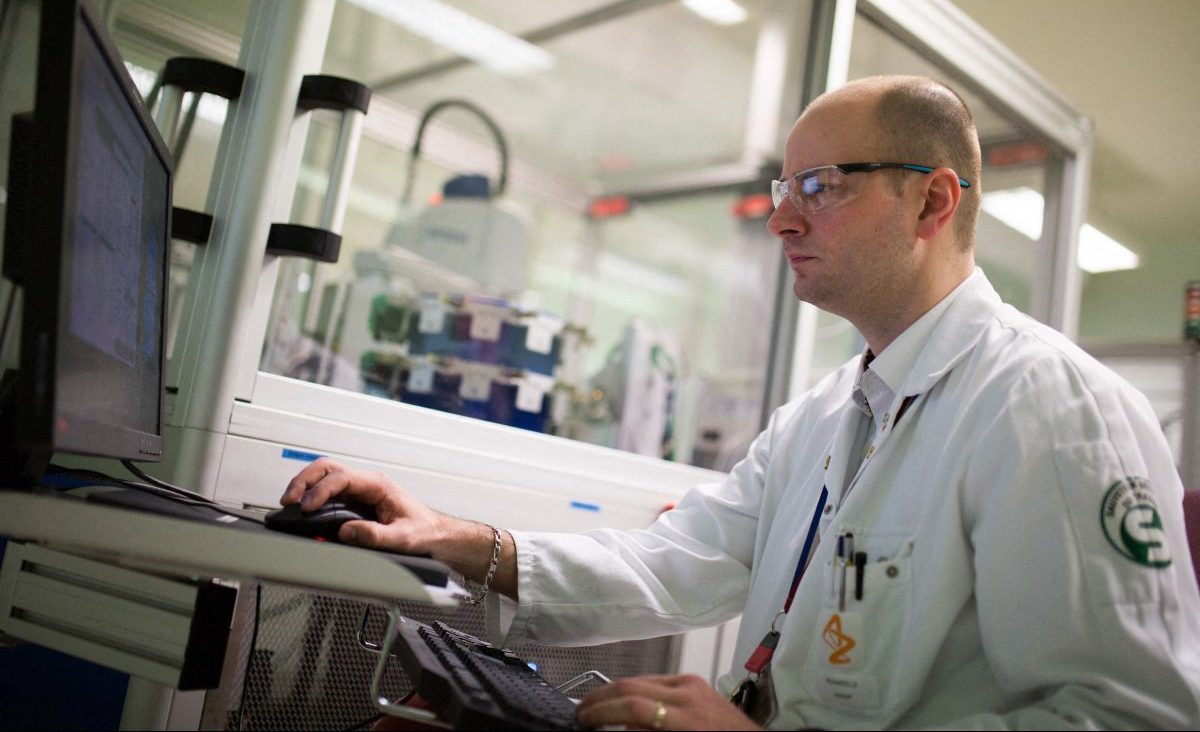AstraZeneca has paused its vaccine trial after a participant fell ill

The news: AstraZeneca has paused its global phase 3 covid-19 vaccine trial after a UK participant fell seriously ill. It’s unclear if the suspected “serious adverse reaction” was a result of receiving the vaccine or coincidental, but the person affected is expected to recover, according to STAT. We also don’t know how long the trial pause will last. In the meantime, the company will review all safety data collected so far, and researchers running the nine other phase 3 coronavirus vaccine trials will comb through their data to look for similar cases of adverse reactions.
Don’t panic: It is standard practice for clinical trials to be paused in this scenario, with enrollment of new participants and dosing of existing ones placed on hold. While it’s a setback, it may just be a temporary one. Arguably, it’s reassuring that standard safety practices continue to apply despite the political pressure being exerted on the timeline and outcome of these trials. President Trump is keen to be able to unveil a vaccine before the election on November 3 but has received significant pushback, not only from his opponent, Joe Biden, but also from the pharmaceutical community. The CEOs of all the nine companies with vaccines in late-stage trials signed a pledge yesterday to “stand with science,” make the safety and well-being of vaccinated individuals the top priority, and only submit vaccines for approval after demonstrating they are safe and effective in a phase 3 study.
A bit more about the vaccine: AstraZeneca’s candidate is a front-runner in the global hunt for a vaccine and the firm has previously said it hopes to have one ready by the end of the year. It uses a modified chimpanzee adenovirus, altered to make it harmless to people, that carries a gene for one of the proteins in SARS-CoV-2, the virus that causes covid-19. The adenovirus is designed to provoke the immune system to create a protective response against the coronavirus. An earlier trial of the vaccine reported that 60% of the 1,000 participants experienced side effects, including fever, headaches, and muscle pain, but they were all mild and subsided shortly. Charlie Weller, head of the vaccines program at UK research charity Wellcome, said: "Safety is the most important consideration when developing any vaccine, and it is right for the trial to be paused while an investigation takes place."
Deep Dive
Biotechnology and health
How scientists traced a mysterious covid case back to six toilets
When wastewater surveillance turns into a hunt for a single infected individual, the ethics get tricky.
An AI-driven “factory of drugs” claims to have hit a big milestone
Insilico is part of a wave of companies betting on AI as the "next amazing revolution" in biology
The quest to legitimize longevity medicine
Longevity clinics offer a mix of services that largely cater to the wealthy. Now there’s a push to establish their work as a credible medical field.
There is a new most expensive drug in the world. Price tag: $4.25 million
But will the latest gene therapy suffer the curse of the costliest drug?
Stay connected
Get the latest updates from
MIT Technology Review
Discover special offers, top stories, upcoming events, and more.